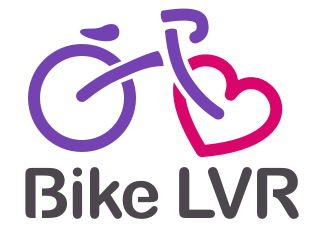Deciding between an electric bike and a regular bicycle can be a bit of a conundrum. With the buzz around ebikes they have surged in popularity. But are they really the better option? Let’s dive into the nitty-gritty of electric vs regular bikes.
Weight: Electric Bikes vs Regular Bikes
When diving into the debate of electric bikes versus regular ones, weight is a paramount factor I can’t ignore. Electric bikes are heavier than their conventional counterparts, primarily due to the added components like the battery and motor. Generally, you’ll find that electric bikes tip the scales at a substantial 18 to 25kg. That’s quite the jump from the average weight of a regular bike, which hovers around 10 to 16kg.
You might think that the extra pounds would make electric bikes less maneuverable. However, the truth is that the additional weight isn’t as burdensome as I had worried about on my Aventon. Let’s talk numbers. In a direct comparison, the heftiest electric bike can be more than double the weight of the lightest conventional bike. Despite this, electric assistance plays a crucial role in leveling the playing field. The boost provided by an electric bike’s motor means I’m not wrestling with the full weight when pedaling – the bike is shouldering some of that load for me.
| Bike Type | Weight Range (kg) |
|---|---|
| Electric Bikes | 18 – 25 |
| Regular Bikes (Conventional) | 10 – 16 |
Considering my trail rides and the occasional uphill challenge, the smoother power delivery of an electric bike’s motor can make a significant difference. It turns a potentially strenuous outing into a more relaxed and enjoyable ride. Particularly with center-mounted motor systems, I’ve found that the riding experience mirrors that of a traditional bike quite closely.
But let’s not overlook one practical aspect – storage. If I need to carry my bike up a flight of stairs or load it onto a rack, a regular bike’s lesser weight is definitely an advantage. With the recent rash of battery fires your wife may ask you to store it outside!
In the end, it boils down to my needs and preferences. Do I value the assistance and ease that comes with an electric bike’s heft, or do I prioritize the lightness and simplicity of a conventional bike? As I continue to explore these two distinct paths, the comparison becomes more about utility and less about numbers alone.
Speed Comparison: Which Bike is Faster?
When comparing the speed of Aventon Electric Bikes to traditional bikes, it’s clear that each has its own set of advantages. People often overlook the temporary boost in speed electric bicycles offer thanks to their pedal-assist feature. With multiple levels of assistance, electric bikes allow riders to easily achieve speeds of 25 mph when using pedal assist and 21 mph with throttle alone. Conventional bikes, on the other hand, have an average high speed of 15-19 mph but can hit higher speeds down hill and consistently with a conditioned rider.
Here’s a quick view of how the speeds stack up:
| Bike Type | Average High Speed (mph) |
|---|---|
| Electric Bikes | 21-28 |
| Conventional Bike | 15-19 |
But it’s not just about faster speeds; it’s the consistency and ease with which you can maintain them. Electric bikes are unmatched in their ability to help riders maintain a higher speed, especially during parts of the ride that typically slow down a cyclist on a conventional bike. This feature is particularly beneficial if you’re cycling to commute or for those uphills or windy stretches become less daunting.
The caveat, however, lies in the built-in speed limitations of electric bikes. For instance, the motor of an ebike will assist you up to speeds of 20 or 28 MPH, depending on the model. Beyond that, the motor cuts out, leaving you to rely solely on leg power. So if my usual cycling speed on a road bike exceeds these speeds, then an electric bicycle might actually hold me back more than push me forward.
In everyday scenarios though, for most of us, an electric bike is the go-to choice for a easier journey without the additional effort. Whether it’s getting to work or exploring new terrains, the convenience of an electric bicycle can’t be overstated. Riding on an electric bike, I’ve found that I can travel farther and cover more ground as I mostly trail ride here in NH.

Environmental Impact: E-Bikes vs Traditional Bicycles
When considering the environmental impact of electric bikes vs traditional bicycles, it’s tempting to base judgments solely on production methods. Initially, it seems clear that a conventional bike, without the need for electricity or battery production, would have a smaller carbon footprint. However, the reality is more nuanced.
Electric bikes do require more energy to produce; especially their batteries which include complex components and materials. Yet, once they leave the factory, e-bikes start to offer environmental benefits over their traditional counterparts. They allow for longer commutes without the fossil fuel consumption that would be involved if one were using a car or public transport. By facilitating easier travel over greater distances, electric bicycles encourage car-free commuting, effectively reducing greenhouse gas emissions in the long run.
While traditional bicycles don’t consume electricity, they aren’t a viable replacement for all car journeys, particularly those that are longer or involve carrying significant loads. E-bikes excel in these scenarios, and their usage can significantly decrease an individual’s reliance on cars, thus lessening one’s environmental footprint.
| Aspect | Electric Bikes | Traditional Bicycles |
|---|---|---|
| Production Energy Use | Higher due to batteries | Lower |
| Post-Production Emission | Low; reduces car use | Mixed |
| Commuting Practicality | Suitable for longer distances | Bike dependent |
What really stands out is the potential of electric bikes in tackling environmental issues by changing our transportation habits. They’re not just tools for recreation but powerful instruments for habit change.
Cost: Electric Bikes vs Regular Bikes
When weighing the pros and cons of electric bikes, or e-bikes, against traditional bicycles, cost often emerges as the pivotal factor. Electric bikes have a higher initial price point than conventional bikes. With my Aventon I’m only on year one so it remains to be seen what the differences will be on maintenance.
Comparing the cost of maintenance between e-bikes and traditional bikes, the standard upkeep, such as fixing flat tires or making adjustments, generally costs the same. However, it’s the electric components that add an extra layer to the e-bike’s maintenance expenses. For instance, the battery—arguably the heart of an e-bike—can be costly to replace. It runs around $36 a year to charge your ebike thought that varies with usage and distance.
| Item | Electric Bikes | Regular Bikes |
|---|---|---|
| Initial Cost | Higher $1K – $2K | Lower |
| Maintenance (Standard) | Comparable | Comparable |
| Additional Maintenance Costs | Battery | N/A |
| Long-term Savings | Unknown | Lower |
Taking a closer look at the maintenance chatter of my Aventon Electric Bike or similar brands can yield interesting findings. eBikes typically feature tires specifically designed for the additional weight, add control units, lights, and I expect a slightly increasing maintenance complexity and cost ($350 ebike vs $200 bike) when compared to a conventional bike but time will tell.
In summarizing expenses, regular bikes have slightly lower costs regarding maintenance but they win flat out in initial purchases price of a mid range ebike is $2,000 – $3,000 vs $1,000+ for a regular bike.
What bike to buy?
If you are on a budget buy a regular bike.
Its too early to say what the ongoing costs of my Aventon will be but I love it. I ride it more as I can carry my daughter in her seat easily and cover larger distance than I otherwise would attempt weekly.

How do you plan to ride?
- If theft is a worry I would not buy an ebike
- If you are on a budget buy a regular bike or better yet a used bike
- If a fire in your apartment is a worry I would not buy an ebike
- If you live in a location like an Island and you worried about maintenance I would not buy an ebike
- If you tote kids around like I do I would buy an ebike
- If you ride to work and want to be less sweaty I’d buy an ebike
- If you your an older rider I’d buy an ebike
- If your a heavier rider (like me) and hills can be slower than you like buy an ebike
- If you like to explore father buy an ebike
- If your an infrequent rider and have the budget I would buy an ebike
